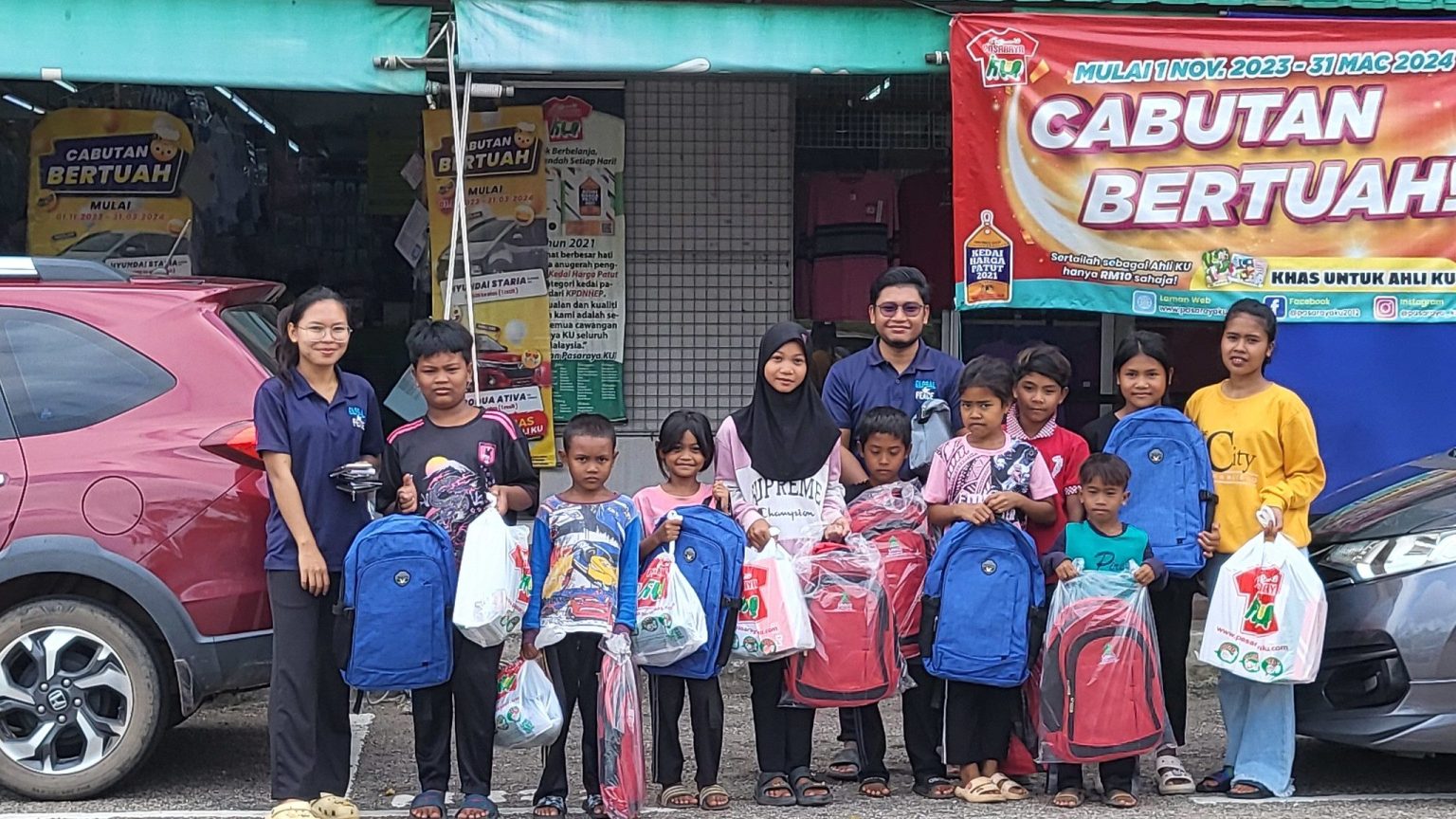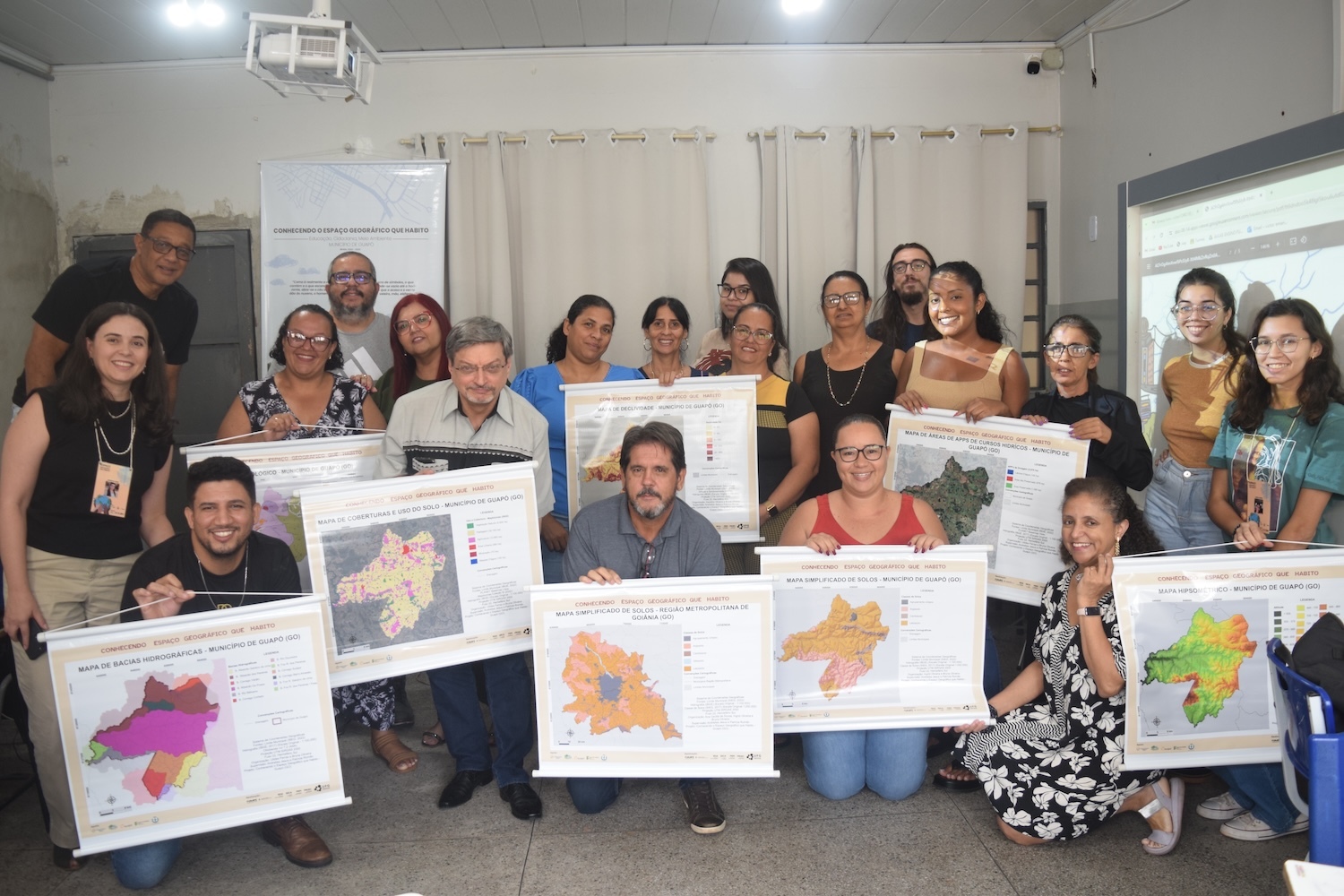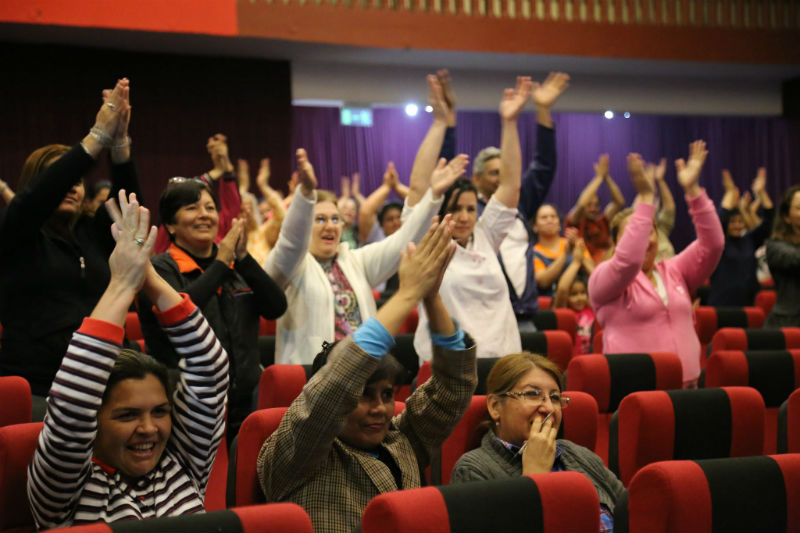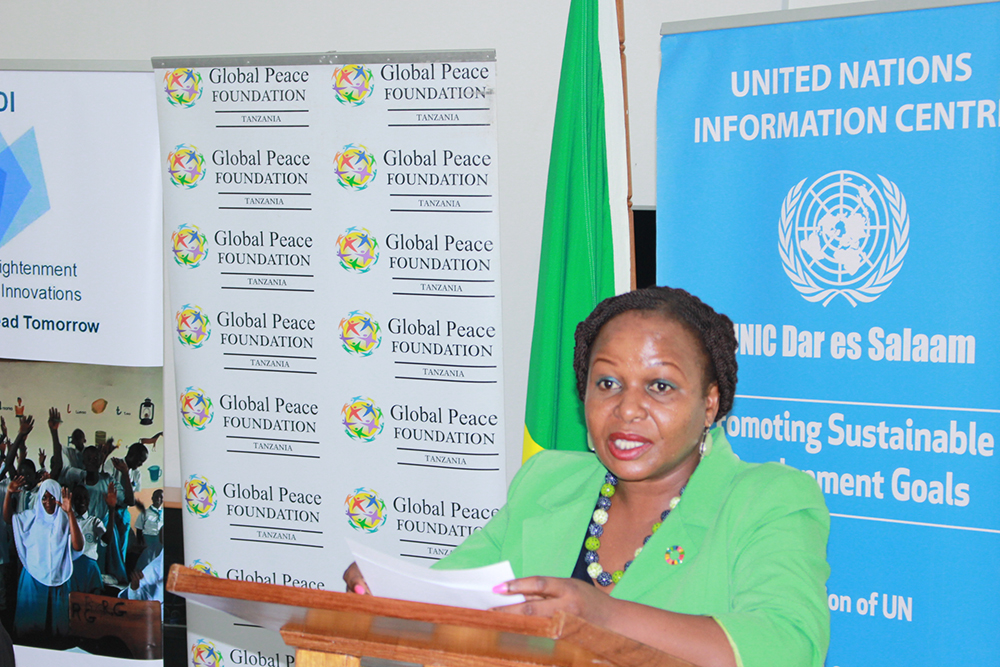
The head information officer of the United Nations, Ms. Stella Vuzo presenting her opening remark before the dialogue session.
Since Tanzania’s independence in 1961, the education system in Tanzania has undergone multiple transformations based on political and economic changes and now faces a number of challenges in issues related to teen pregnancy, gender inequality, and youth unemployment. For this year’s International Day of Education on January 24th, Global Peace Foundation (GPF) Tanzania in partnership with Youth of United Nations (YUNA) and Tanzania Enlightenment Development Innovations (TEDI) organized a youth dialogue comprising of teachers and students from the University of Dar es Salaam, Juhudi and Kisemvule Secondary Schools, as well as education stakeholders, media personnel, parents and education analysts to reaffirm education as a fundamental right and to celebrate its empowerment to foster peace.
The head of communication officer of the United Nations Tanzania, Ms. Stella Vuzo, gave a presentation that showed that less than 40% of girls in sub-Saharan Africa complete lower secondary school and some four million children and youth refugees are out of school. She declared that it was unacceptable that the children’s right to education was being violated. She presented the necessity for inclusive quality education and lifelong opportunities for all to achieve gender equality and break the cycle of poverty in all countries.

The first session at the International Day of Education forum in Tanzania.
The dialogue for the importance of education proceeded through multiple panels that tackled subjects within this year’s international theme: “Learning For People, Planet, Prosperity, And Peace.”
The panelists for the “Learning For People” panel gave presentations on education empowering people and contributing to the greater good of society. The panelists also showed that education could help develop talents and realize our creative potentials in solving problems.
Kelvin Eduard from YUNA spoke at the panel, “Learning For Planet,” on using our education to preserve our environment and to develop ways to help reverse unsustainable practices so that people could live in harmony with nature in the future.
At the panel, ”Learning For Prosperity,” Glory from TEDI emphasized that youth should equip themselves with soft skills to prosper in the workforce. She said that the positive results of acquiring these will would include enhanced access to work and increased income.
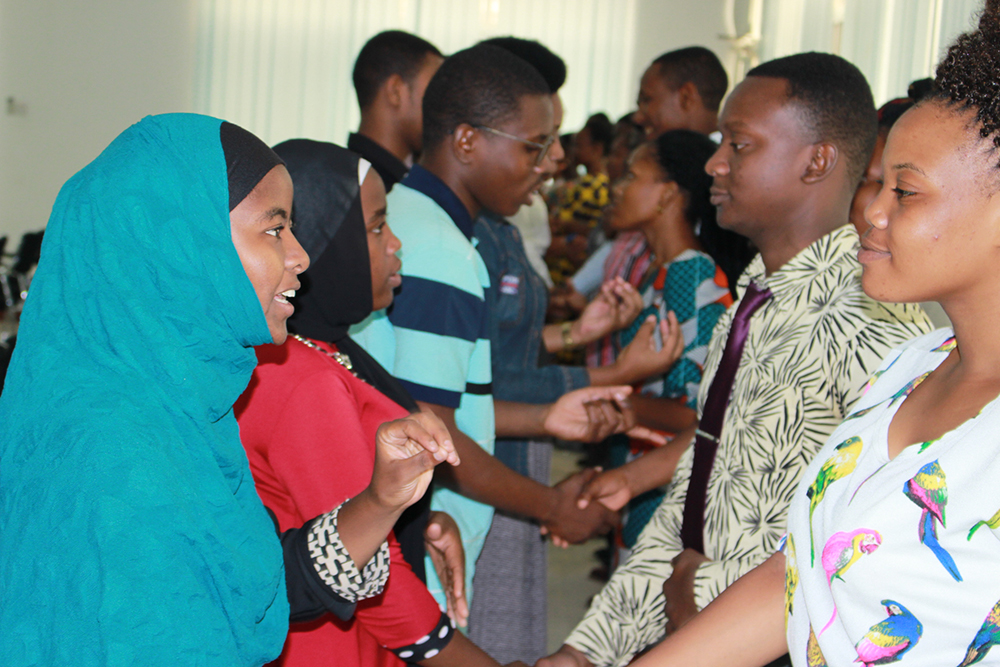
Youth participating in the active dialogue session.
For the panel, “Learning for Peace,” Irene Ishengoma from GPF spoke about creating a foundation of peace from contributing to reconciliation, mutual understanding, and social cohesion in the family. She discussed the importance of teaching the children these concepts to develop them as future peacebuilders.
After the panels, the participants, inspired by what they learned from the presenters, freely discussed ways to make education meaningful enough to empower people, preserve the planet, build the prosperity of the youth, and promote peacebuilding.

